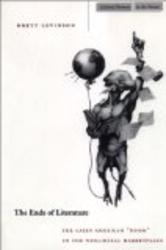Description
This essay discusses the role of literature in contemporary Latin American thought and politics, and how it has been affected by neoliberalism. It also discusses the transition from dictatorship to democracy in Latin America, and how this has affected literature.
The Ends of Literature analyzes the part played by literature within contemporary Latin American thought and politics, above all the politics of neoliberalism. The why?" of contemporary Latin American literature is the book's overarching concern. Its wide range includes close readings of the prose of Cortzar, Carpentier, Paz, Valenzuela, Piglia, and Las Casas; of the relationship of the "Boom" movement and its aftermath; of testimonial narrative; and of contemporary Chilean and Chicano film. The work also investigates in detail various theoretical projects as they intersect with and emerge from Latin American scholarship: cultural studies, deconstruction, psychoanalysis, and postcolonial studies. Latin American literature, both as a vehicle of conservatism and as an agent of subversion, is bound from its inception to the rise of the state. Literature's nature, role, and status are therefore altered when the Latin American nation-state succumbs to the process of neoliberalism: as the "too-strong" state (dictatorship) yields to the "too-weak" state (the market), and as the various practices of civil society and public life are replaced by private or privatized endeavors. However, neither the "end of literature" nor the "end of the state" can be assumed. The end of literature in Latin America is in fact the call for more literature; it is the call of literature, in particular that of the Boom. The end of the state, likewise, is the demand upon this state. The book, then, analyzes the "ends" in question as at once their purpose, direction, future, and conclusion. Also key to the study is the notion of transition. Within much recent Latin American political discussion
la transicin refers to the passage from dictatorship to democracy, as well as to the failure of this shift, the failure of post-dictatorship. The author argues that the movement from literary to cultural studies, while issuing from intellectual and aesthetic circles, is an integral component of this same transition. The thematization of the bind between these two displacements-hence of Latin America's voyage into "post-transition"-forms a fundamental portion of the text.
"
